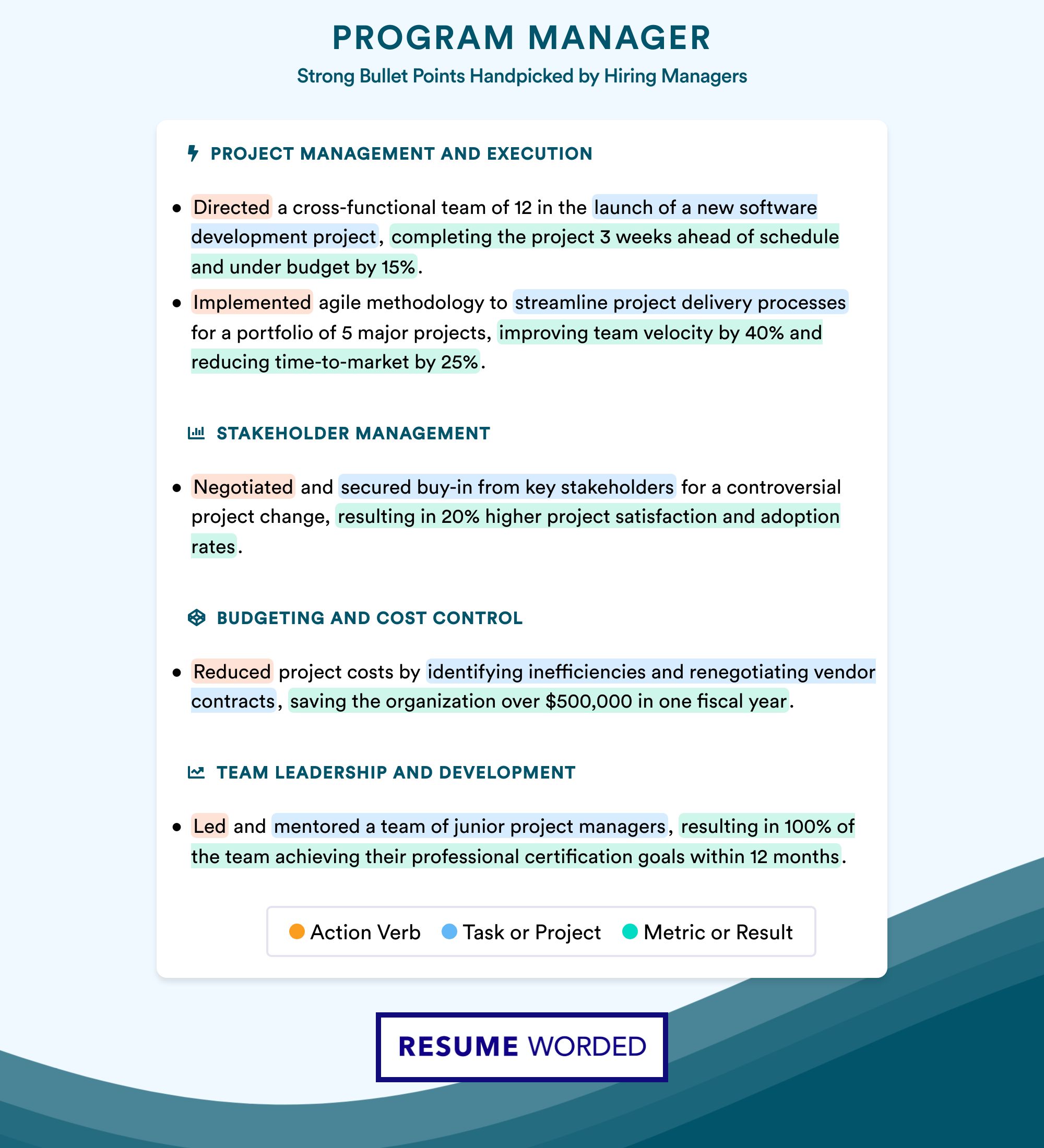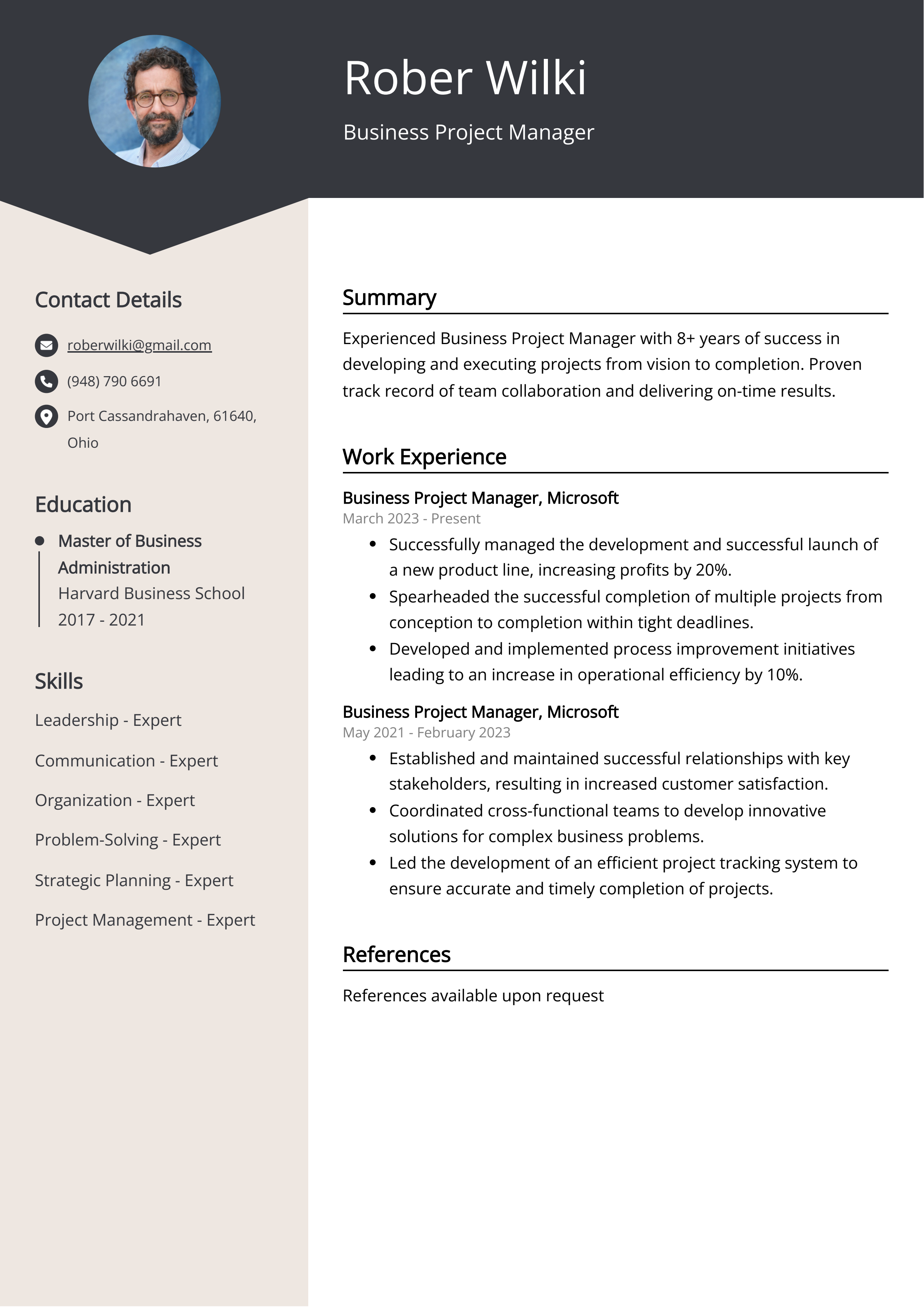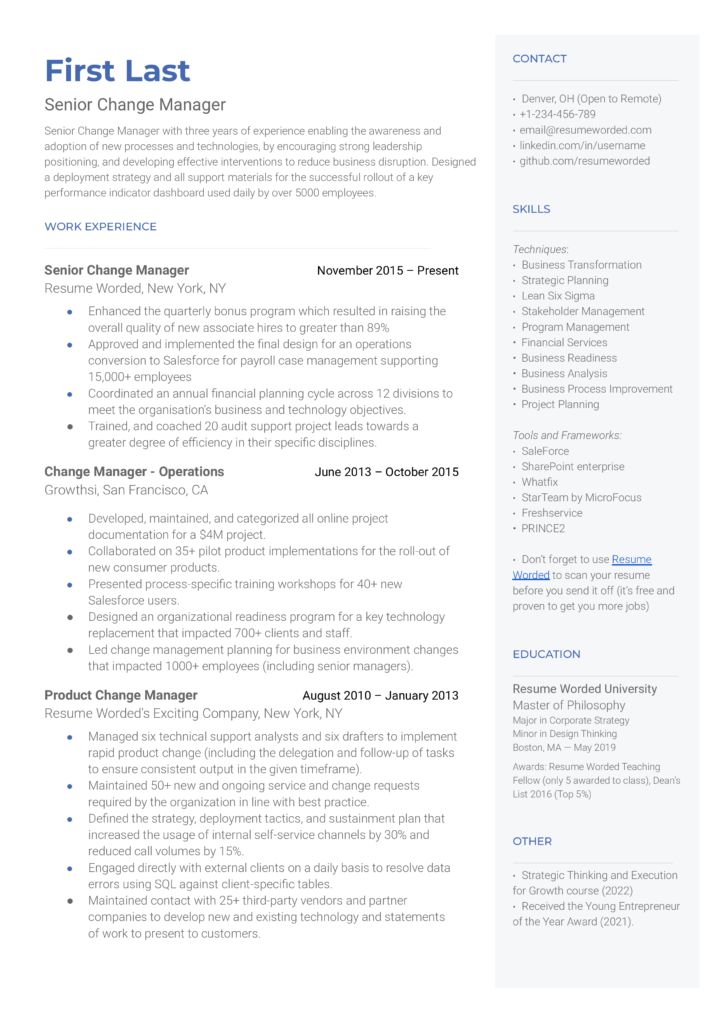Project management is a crucial skill. Both new managers and experienced leaders need it. Effective project management ensures success. It helps in completing tasks on time and within budget.
Understanding Project Management
Project management involves planning, executing, and closing projects. It includes setting goals, assigning tasks, and monitoring progress. A good project manager ensures everything runs smoothly. They keep the team focused and motivated.

Credit: resumeworded.com

Credit: resumaker.ai
Essential Tips for New Managers
New managers often face challenges. Here are some tips to help you succeed:
1. Set Clear Goals
Clear goals are important. They give your team direction. Make sure everyone understands the goals. Write them down. Share them with your team.
2. Communicate Effectively
Good communication is key. Keep your team informed. Hold regular meetings. Encourage questions. Listen to feedback. Clear communication prevents misunderstandings.
3. Delegate Tasks
Don’t try to do everything yourself. Delegate tasks to your team. Trust their abilities. This helps in completing tasks faster. It also builds team confidence.
4. Monitor Progress
Keep track of progress. Use project management tools. Check in with your team regularly. Address issues quickly. This ensures the project stays on track.
5. Stay Organized
Organization is important. Use calendars and to-do lists. Keep files and documents in order. An organized manager is more efficient.
Advanced Tips for Experienced Leaders
Experienced leaders can always improve. Here are some advanced tips:
1. Foster Team Collaboration
Encourage your team to work together. Promote a collaborative environment. Use team-building activities. Collaboration leads to better results.
2. Adapt To Changes
Projects often face changes. Be flexible. Adapt to new situations. Update your plans as needed. This helps in handling unexpected challenges.
3. Focus On Quality
Quality is important. Ensure your team maintains high standards. Check the work regularly. Provide feedback. Quality work leads to satisfied clients.
4. Manage Risks
Identify potential risks early. Create a risk management plan. Address risks before they become problems. This reduces project disruptions.
5. Lead By Example
Set a good example for your team. Be punctual. Show dedication. Your team will follow your lead. Good leadership inspires better performance.
Key Project Management Tools
Project management tools help in managing tasks. Here are some useful tools:
| Tool | Description |
|---|---|
| Asana | Task management and collaboration tool |
| Trello | Visual project management tool with boards and cards |
| Slack | Team communication and collaboration platform |
| Microsoft Project | Comprehensive project management software |
| Jira | Project tracking and management tool for software development |
Frequently Asked Questions
What Are The Key Skills For New Project Managers?
New project managers need communication, organization, time management, and leadership skills. These help in managing tasks and teams effectively.
How Can I Improve Team Communication?
Use clear, consistent communication channels. Hold regular meetings and encourage open feedback. Tools like Slack can help.
How Do Experienced Leaders Handle Project Risks?
They identify risks early, create mitigation plans, and monitor progress. Flexibility and adaptability are crucial in risk management.
What Tools Are Essential For Project Management?
Common tools include Trello, Asana, and Microsoft Project. These help in task tracking, collaboration, and reporting.
Conclusion
Project management is essential for success. New managers should focus on clear goals, communication, and organization. Experienced leaders should foster collaboration and manage risks. Using the right tools can also help. Follow these tips to improve your project management skills. Lead your team to success.

